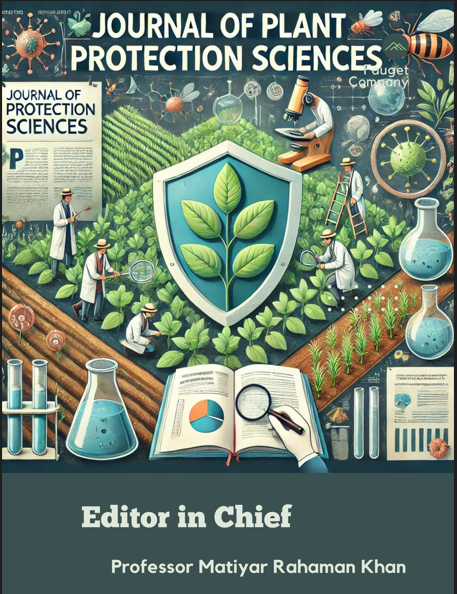Development of flower galls in Prosopis cineraria trees of Rajasthan
DOI:
https://doi.org/10.48165/Keywords:
cineraria, nematodes, abnormalAbstract
Plant galls are abnormal growths caused by stimulation of plant cells with the interaction by the nematodes, fungus, bacteria, mites, in sect etc. (2, 24, 26). Galls can be formed in the lamina and petioles of leaves, twigs, buds, flowers or on the roots. Each type of gall producer is specific to a particular kind of plant. The gall is a unique example of a plant pest relationship causing harmful effects such as hypertrophies and tumorous (neoplasmic) outgrowths as well as beneficial effect to the plants in fixing nitrogen by bacteria, actino mycetes and blue-green algae. Damage by the plant galls is not only the aesthetic problem but also cause serious problems to the many host plants including Prosopis cineraria, P. glandulosa var. torreyana and P. velutina (7, 8, 11, 12, 17). In P. cineraria, four distinct types of galls have been reported by various workers (12, 13, 21). Galls damage the stem branches, rachis, leaflets and flowers portions of the Prosopis tree.
References
1. Abdel BE Fahmy G Al Thani N Al Thani R Abdel Dayem M. 2007 The Ghaf Tree, Prosopis cineraria in Qatar. Qatar University and Na tional Council for Culture, Arts and Heritage, Doha, 38p.
2. Armstrong WP. 1995 To be or not to be a gall. Pacific Horticulture 56: 39-45.
3. Arya S Kumar N Toky OP. 1995 Khejri (Prosopis cineraria L. Druce): Its value, Research and Extension, HDRA-ODA Project, India, 131p.
4. Arya HC Vyas GS Tandon P. 2010 The problem of tumor formation in plants, pp 270-79, (URL
http://dspace.nehu.ac.in/handle/1/2701).
5. Gupta JP. 2011 Auxin and IAA oxidase activity related to the leaves gall formation in some forest trees.
6. Gupta RK Prakash I. 1975 Environmental analysis of the Thar Desert, English Book Depot, De hra Dun, pp 70-236.
7. Kumar S Ahmed SI. 2004 A world-wide check-list of insect pest spectrum of Prosopis spp., with new pest records of P. cineraria and P. juliflora from Indian arid and semi-arid areas. My Forest 40: 85-11.
8. Kumar S Ahmed SI. 2006 Seasonal occurrence and population fluctuation of Eriophyes prosopidis Sexena, a leaf and inflorescence gall mite of Prosopis cineraria (Khejri) in Rajasthan. Indian Journal of Forestry 29: 287-92.
9. Sinclair W A Lyon HH Johnson WT. 2005 Dis eases of Trees and Shrubs, Cornell University Press, Ithaca, NY. 660p.
10. Mani MS. 1948 Cecidozoa and Zoocecidia from India. Journal of the Royal Asiatic Society of Bengal 14: 27-95.

